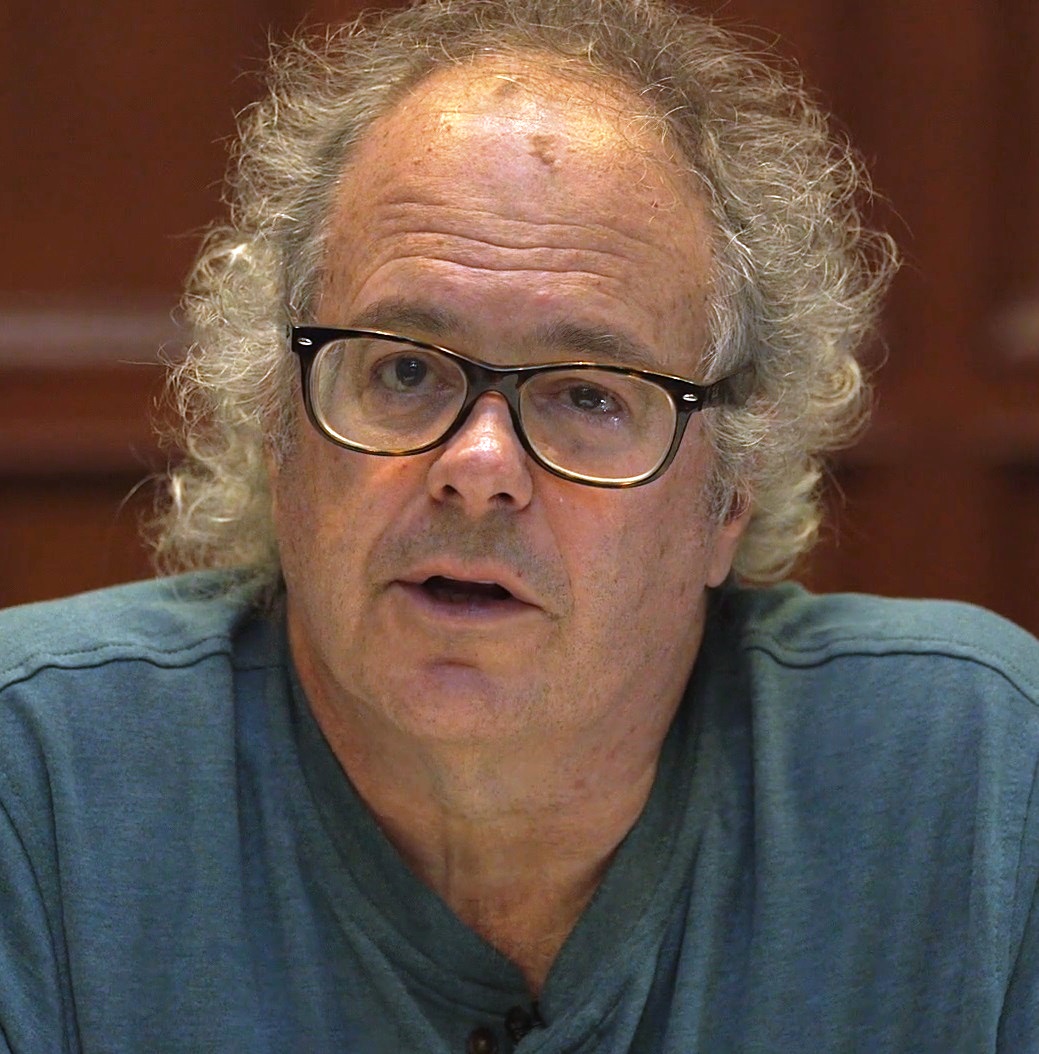Advisory board

Michael Albert
Michael’s view on postcapitalism – a contribution to mέta:
In order to achieve a post-capitalist society, we need first to identify the defining institutions of capitalism.
In my view these are:
(1) private ownership of productive assets,
(2) authoritarian control of workplaces,
(3) production for profit and to maintain the conditions of owners ruling and profiting,
(4) a corporate division of labour with empowered employees (who I call a coordinator class) dominating disempowered employees (who I call a working class),
(5) remuneration for property and power (or for output); and
(6) allocation by markets or central planning.
Each of these institutional features creates class division and class rule; empowers the few and subordinates the many; produces obscene differences in status and wealth; destroys dignity; sacrifices sociality; and denies diversity. And even beyond all that, these institutional features together constitute a suicide machine that devours not only prospects for human fulfillment, but even prospects for human survival.
To get beyond capitalism, and more, to get beyond class division and class rule, and for that matter, to get beyond the economy abetting and intensifying all other social hierarchies, whether rooted in racial, cultural, gender, sexual, or political relations, and to get beyond our downward slide into a barbaric ecological nightmare, we therefore need to attain post-capitalism—and also post-racism, post-patriarchy, and post-authoritarianism.
Of course, what a worthy and sustainable future economy (or culture, family-life, or polity) will look and function like will depend on the actual experiences of escaping the past and entering the future. The details for later cannot be foreseen, much less legislated now. However, we can try to answer a paramount question. What are the minimal essential economic institutional features we must attain if our future selves are to be free and equipped to collectively self manage our post capitalist lives with dignity, equity, and social solidarity? We have a responsibility beyond waiting to see what emerges. We have a responsibility beyond fighting against current injustices. We also need to agree on a scaffold of key characteristics that will prove essential for attaining post-capitalism (and other extra-economic gains) and we need to struggle for and win those key features so that our future selves can live as they decide in a new world they create.
When I think about that responsibility, in particular regarding getting beyond capitalist economics, to me the key features together constitute what has sometimes been called participatory economics, sometimes participatory socialism, and sometimes other names as well, which names are mere labels. The features of this emerging participatory vision are these:
(1) a commons of productive assets (to replace private ownership of those assets),
(2) workplace and consumer self-managing councils (to replace authoritarian control over production and consumption),
(3) production for human fulfillment and development (to replace production for profit),
(4) jobs balanced to equilibrate their empowerment effects (to replace a corporate division of labour that elevates an empowered coordinator class above a disempowered working class),
(5) remuneration based on duration, intensity, and onerousness of socially-valued labour (to replace remuneration for property, power, or output),
(6) and decentralized cooperative negotiation of allocation called participatory planning (to replace markets and central planning).
The details of how each of these critical structures will form, much less the multitude of additional attributes any future worthy economy will include, will of course emerge, contingently, from practical experiences and popular sentiments, no doubt differently in different places that embody different histories and circumstances. But the advocates of this particular vision, including myself, claim that these few defining structures are essential if there is to be self management, equity, solidarity, diversity, sustainability, and classlessness. This set of proposed institutions is thus a scaffold to refine and build on. A scaffold for hope. A scaffold for commitment. And a scaffold for orientation. A post-capitalist economic vision.
Michael Albert is a founder and current member of the staff of Z Magazine as well as staff of Z Magazine`s web system: ZCom. Albert`s radicalization occurred during the 1960s. His political involvements, starting then and continuing to the present, have ranged from local, regional, and national organizing projects and campaigns to co-founding South End Press, Z Magazine, the Z Media Institute, and ZNet, and to working on all these projects, writing for various publications and publishers, giving public talks, etc. Albert is the author of 21 books. Most recently these include: No Bosses: A New Economy for a Better World (Zero Books, 2021), Fanfare for the Future (ZBooks), Remembering Tomorrow (Seven Stories Press), Realizing Hope (Zed Press) and Parecon: Life After Capitalism (Verso). Many of Albert`s articles are stored in ZCom and can be accessed there along with hundreds of other Z Magazine and ZNet articles essays, interviews, etc.


